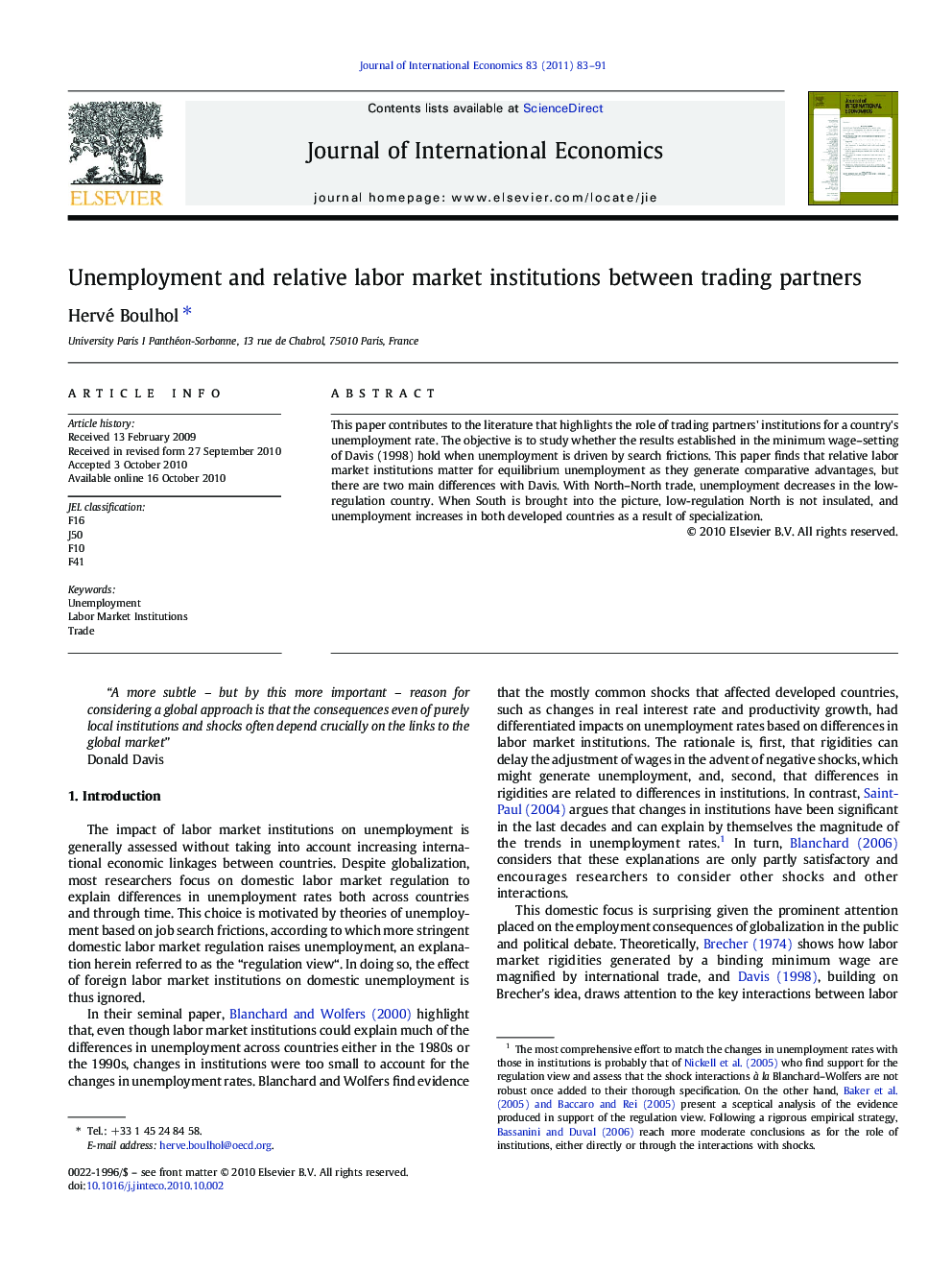| Article ID | Journal | Published Year | Pages | File Type |
|---|---|---|---|---|
| 962683 | Journal of International Economics | 2011 | 9 Pages |
Abstract
This paper contributes to the literature that highlights the role of trading partners' institutions for a country's unemployment rate. The objective is to study whether the results established in the minimum wage-setting of Davis (1998) hold when unemployment is driven by search frictions. This paper finds that relative labor market institutions matter for equilibrium unemployment as they generate comparative advantages, but there are two main differences with Davis. With North-North trade, unemployment decreases in the low-regulation country. When South is brought into the picture, low-regulation North is not insulated, and unemployment increases in both developed countries as a result of specialization.
Related Topics
Social Sciences and Humanities
Economics, Econometrics and Finance
Economics and Econometrics
Authors
Hervé Boulhol,
